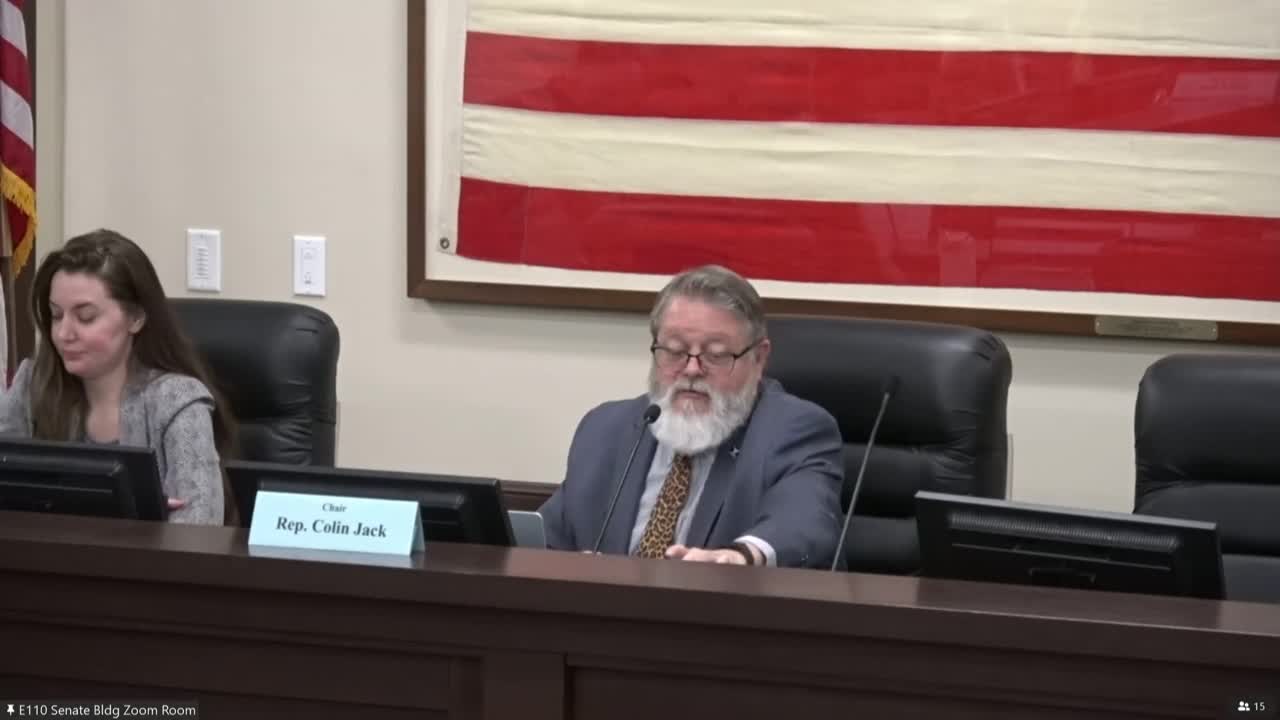Committee backs fee increases for Bureau of Criminal Identification, including $25 registry hike; sponsor cites $1 million shortfall
Get AI-powered insights, summaries, and transcripts
Subscribe
Summary
The House Public Utilities and Energy Committee on Friday recommended favorably the first substitute to HB 4 25, which raises certain Bureau of Criminal Identification fees — including a $25 increase to the offender registry fee — and changes when surplus concealed-permit funds flow to the suicide prevention education fund.
The House Public Utilities and Energy Committee on Friday recommended favorably the first substitute to HB 4 25, a bill that would raise fees collected by the Bureau of Criminal Identification (BCI) and change the timing for transfers from the concealed-weapon permit account to the state’s suicide prevention education fund.
The measure would increase the fee for persons on the offender registry from $100 to $125 and raise certain nonresident concealed-firearm permit fees. The bill also amends when surplus money in the concealed-weapon permit account may flow to the suicide prevention education fund by allowing a reserve to build before transfers occur.
Proponents said the increases are intended to close a program funding gap. Joe Brown, finance director for the Utah Department of Public Safety, told the committee the BCI program “spends around $4,000,000 to operate,” and that projected revenue for the year is about $2.8 million to $3 million — leaving an approximate $1 million shortfall. Brown also said software and other fixed costs have risen, and that the department has reduced staff in the program by attrition.
Bill language submitted to the committee would raise the registry fee by $25, from $100 to $125, and would increase some out-of-state concealed-permit fees. Brown said the registry increase would bring about $125,000 in additional revenue to help cover rising software and maintenance costs for the registry system.
Opponents pressed on several points, including notice and timing. Bill Pedersen, director of the Utah Shooting Sports Council, testified the council and the National Rifle Association oppose the nonresident fee increases and raised concerns that BCI should have notified stakeholders earlier and that an audit of the division might be warranted. Pedersen said opponents believe out-of-state applicants should not shoulder higher costs because, in his words, processing does not require additional staff time compared with in‑state applicants.
A family member of a person on the registry, Leah Hanson of Saratoga Springs, urged the committee to leave the registry fee at $100, saying increased fines would further burden people she described as trying to “make good on their lives.” Hanson asked legislators to strike the bill’s language that would alter transfers to the suicide prevention fund and said she opposed the bill.
Committee members questioned department staff about staffing reductions and the historic transfers to suicide-prevention programs. Sponsors noted several million dollars of prior transfers occurred in years when Utah required permits of residents and the account had built a surplus; those funds were spent and there is no reserve now. The substitute sets a reserve threshold (the bill text references a $2,000,000 cushion) before automatic transfers to suicide prevention, according to committee discussion.
After questions and public comment, the committee voted to recommend the first substitute favorably; the chair announced the motion passed 5–4.
Votes at a glance - Motion: Recommend favorably HB 4 25 (1st substitute), Bureau of Criminal Identification fee amendments. Outcome: Approved 5–4.
What remains unresolved The bill as passed out of committee raises questions opponents said merit further review: whether BCI properly notified stakeholders earlier, whether an audit is needed to explain program spending and prior transfers, and whether the fee structure appropriately balances resident versus nonresident applicants. Sponsors said the increases are needed to avoid shifting the program’s operating costs onto general fund appropriations.
Key numbers and details cited in committee - Current registry fee: $100. Proposed: $125 (increase of $25). - Department estimate: program operating costs roughly $4,000,000 per year; projected revenue $2.8–$3,000,000; shortfall ≈ $1,000,000. - Staff reductions: the department said it has eliminated about 6–7 positions from the program through attrition. - Historical transfers: committee discussion cited several million dollars (committee discussion referenced roughly $7 million) previously moved from the concealed-permit account to the suicide prevention fund in years when resident permit issuance was much higher.
Next steps The bill will proceed through the legislative process following the committee recommendation. Committee members and public witnesses urged continued transparency from the Department of Public Safety about program costs and recommended consideration of an audit to review past spending and transfers.
